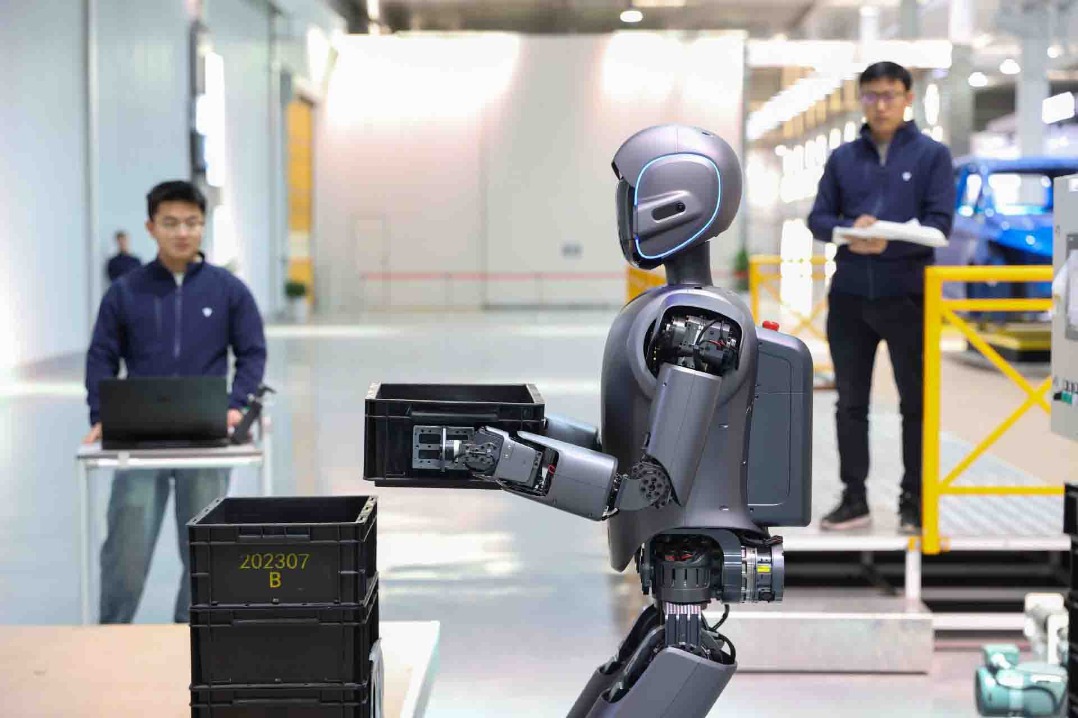Deep learning rising in importance within booming AI sector


The application scenarios of China's artificial intelligence-powered deep-learning frameworks will be more diversified and buoyed by open-source platforms and large-scale industrial use, with the cost and application threshold to be further lowered, said Ma Yanjun, general manager of Baidu AI technology ecosystem.
Meanwhile, deep-learning frameworks will be integrated and innovated with more frontier industries such as scientific computing, quantum computing and life sciences, Ma said.
Deep-learning frameworks, which are used by software developers to build AI applications, have been included in the field of next-generation AI and represent key cutting-edge technology supported by the nation during the 14th Five-Year Plan period (2021-25).
As the first open-source deep-learning platform in China, Baidu's PaddlePaddle provides software developers of all skill levels with the tools, services and resources they need to rapidly adopt and implement deep learning at scale.
Ma said that at present, an increasing number of developers and companies are pushing forward with applications for intelligent transformation based on domestic deep-learning platforms so as to create solutions targeted at different scenarios in various industries.
As deep-learning frameworks represent the operating system in the era of intelligence and constitute the infrastructure of AI coupled with chips, he said, deep-learning platforms are crucial to building an AI ecosystem and connecting the basic infrastructure technology such as chips and final applications.
PaddlePaddle has garnered 4.06 million developers on its platform, served more than 157,000 enterprises and institutions, created 476,000 AI models and now covers dozens of industries such as manufacturing, agriculture, healthcare, city management, transportation and finance.
It has worked with 22 domestic and foreign hardware manufacturers such as Intel, Nvidia and Huawei, and is now compatible with 31 kinds of chips, Ma said.
Wang Haifeng, chief technology officer of Baidu, said in an earlier interview that the company will continue to drive technological innovation, partner with developers to advance deep learning and AI technologies, and speed up the process of industrial intelligence.
According to global market consultancy IDC, PaddlePaddle ranked first in terms of market share among deep-learning platforms in China as of December 2021, surpassing Google's TensorFlow and Facebook's PyTorch.
However, there are some bottlenecks that hinder the development of deep-learning frameworks, Ma said. He said China is still experiencing a shortage of technical talent in underlying AI technologies and it takes at least three to six months to put an AI application into use.
It is a long and complicated process to develop a deep-learning framework and build an AI application ecosystem with a large amount of investment, Ma added.
In addition, Huawei Technologies Co has launched its own AI computing framework Mind-Spore, which is aimed at helping software developers build advanced AI applications with ease and optimize their models more quickly. AI computing frameworks are critical to making AI applications easier and more accessible, the company said.
Lu Yanxia, assistant research director of IDC, said homegrown AI deep-learning frameworks-such as PaddlePaddle and Mind-Spore-are growing steadily, with their influence gradually enhanced thanks to their more localized products and services, and a better understanding of local client and industry needs.
"We can see the technological level and richness of functionality are on a par with or outperform their foreign counterparts' rival products, which will help boost market share of native deep-learning frameworks," Lu said, adding more efforts should be made to accelerate the globalization push of domestic AI frameworks.
Deep-learning technologies create opportunities for revamping operations and workload management, and enhancing productivity, experts said.
In the wake of the COVID-19 pandemic, LinkingMed, a Beijing-based oncology data platform and medical data analysis company, released China's first open-source AI model for pneumonia CT scan analysis, powered by PaddlePaddle.
The AI model can quickly detect and identify pneumonic lesions while providing quantitative assessment for diagnosis information, including the number, volume and proportion of pneumonic lesions. LinkingMed has developed an AI-powered pneumonia screening and lesion-detection system, which can pinpoint the disease in less than one minute with a detection accuracy of 92 percent.
- Re-imagining business via digitalization
- New technologies are protecting people's privacy in the current era of big data
- New guideline will enhance oversight of research in frontier fields
- China to lead world's AI application: US media
- Insiders highlight green data centers' role in achieving net zero goals




































